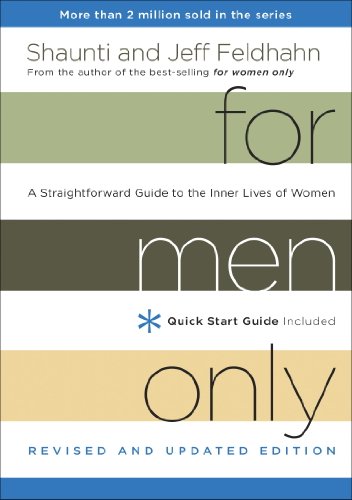The book we’re closing February out with is a relationship book. Except, it’s about knowing when to walk away from toxic people. Recently, it seems to have resurged in popularity at my church.
That book is…

“Your life’s calling is too important to let toxic people take it away. When to Walk Away draws from biblical and modern stories to equip you to handle toxic people in your life and live true to your God-given purpose.
As Christians, we often feel the guilt and responsibility of meeting the needs of unhealthy people in our lives. Whether a sibling, parent, spouse, coworker, or friend, toxic people frequently seek to frustrate our life’s calling. While you’re seeking first God’s kingdom, they’re seeking first to distract your focus and delay your work.
Instead of attempting the impossible task of mollifying toxic people, it’s time we dedicate our energy to the only worthwhile effort: completing the work God has given us by investing in reliable people. It’s only when we learn to say no to bad patterns that we can say yes to the good work God has planned for us.
Drawing from years serving as a pastor, Gary Thomas (bestselling author of Sacred Marriage) looks at biblical examples from the lives of Jesus, Paul, and Nehemiah to give you insightful, biblical takeaways that you can apply right away. You’ll discover how to:
Learn the difference between difficult people and toxic people.
Find refuge in God when you feel under attack.
Discern when to walk away from a toxic situation
Keep a tender heart even in unhealthy relationships.
Grow your inner strength and invest in reliable people.
We can’t let others steal our joy or our mission. It’s time to strengthen our defense, learn to set healthy boundaries, and focus on our God-given purpose. It’s time to know When to Walk Away.”
Another book raised a bit of cognitive dissonance inside me when I read it in 2019. That was a year I was really struggling with burnout at times.
Let’s get to the quotes. It’s a Kindle book, so I highlighted a lot.
Who’s a toxic person?
“If someone is getting in the way of you becoming the person God created you to be or frustrating the work God has called you to do, for you that person is toxic.”
“The challenge is that there’s no one exhaustive definition of a toxic person. Certain traits are common: They are often ruled by selfishness and spite. They are usually draining instead of encouraging, and they use people instead of loving them. They are often seemingly addicted to self-righteous, rash judgments and thus frequently fight with people instead of enjoying and appreciating people. They may be jealous of healthy people’s peace, family, and friendships and spend much of their time and effort trying to bring people down to their level of misery rather than blessing others with joy and encouragement. They often want to control you, and it may feel as if they just want you to stop being you.”
What would Jesus do?
“Sometimes Jesus walked away from others who wanted more of him. On still other occasions, he retreated for his own refreshment and renewal or protection. The point is that Jesus didn’t let the needs, pleas, attacks, or unresponsiveness of others distract him from the mission given to him by his heavenly Father.”
“Here’s the principle that comes from that: Sometimes to follow in the footsteps of Jesus is to walk away from others or to let them walk away from us.”
“…the principle is clear: when truth is rejected, spend your time on those who will receive it instead of begging closed-hearted people to reconsider.”
“Jesus wasn’t moved by either standing ovations or jeering ridicule. He was truly Lord of his life. Neither should we allow the neediness of others or the toxicity of others to determine where, when, and how we spend our time. Neediness can be a subtle form of toxicity. Our spiritual radar goes way up when someone forcefully attacks us, but a passive-aggressive neediness can slip in unawares and steal our attention even more effectively than a full-frontal assault. If someone is trying to control you, that itself is toxic. Whether they use force or guilt, direct attack or unreasonable neediness (“You’re the only one who can help me, and you have to help me now”), it’s still all about control. Controlling someone (or letting yourself be controlled) is wrong.”
This is only 12% through the book. At the 49% mark, there’s this reminder:
“God is radically for people. He wants everyone to come to a knowledge of the truth (1 Timothy 2:4). As his followers, we also must be for everyone, even if we oppose what they’re doing. If we must live and work with toxic people, our call is to make sure their toxicity doesn’t become ours. We don’t treat them as they treat us. We don’t offer evil in exchange for evil. We love. We serve. We guard our hearts so that we are not poisoned by their bad example.”
Remember that the next time you post or scroll through social media.
I’ll close with this quote about why Christians are mean.
“Dallas Willard was once asked why Christians are so mean. He responded by saying that Christians tend to be mean to the degree that they value being right over being like Christ. The two aren’t mutually exclusive, of course, but we can make them that way when instead of receiving the words of Jesus and the writings of Paul as love letters from God to those who are chosen and loved, we use them as verbal weapons to wage war against people who don’t yet believe. I don’t want you to rush by that last sentence. God’s directives and “rules” in the New Testament aren’t intended to be verbal grenades that we lob at people who don’t believe. When someone doesn’t accept Jesus’ authority, we can’t expect them to listen to what the Bible teaches. When God has won over our hearts, we understand that his revealed words regarding appropriate behavior are birthed in love and ultimately given for our best interests. We won’t love God’s words until we first love God, so keep first things first. Taunting people even with the truth can become toxic in a controlling sort of way. It’s still taunting. Methods matter.”
The book deals with when others are toxic and when you’re unhealthy. 5 stars. Now I have to reread it. My reread pile is as big as my to-read pile.




